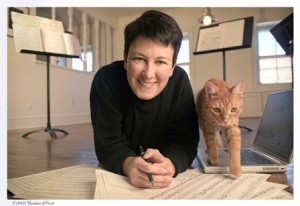The Rochester Philharmonic Orchestra has been making headline after headline as of late—and not for the same reasons that it did just a year or so ago. The orchestra that was only months ago presented with the first Amy Award for programming excellence has now fired the Music Director that made the award possible. The situation surrounding the termination of conductor Arild Remmereit is becoming increasingly complicated and frustrating for the RPO musicians and Remmereit’s supporters.
While I am not qualified to speak directly to the circumstances, and the extremely divided viewpoints on the matter, I do have a great concern regarding the future programming of the RPO.
Maestro Remmereit’s programming choices made a significant impact for Rochester and the larger classical music community, even with his extremely abbreviated tenure. A recent editorial in the Democrat and Chronicle spoke to the difficult situation that now exists in Rochester, and acknowledged among Remmereit’s achievements the inclusion of work by women and minority artists. In fact, his programming choices were so innovative as to warrant an invitation for the RPO to performing during the 2014 Spring For Music festival at Carnegie Hall. The original press release proudly announced that their performance, scheduled for May 7, 2014, would include Amy Beach’s Gaelic Symphony and other works by women composers. It seemed only logical that RPO would perform Beach at Carnegie Hall—the honor of participation came as a result of their adventurous and innovative programming. In other words: because Remmereit dared to feature under-performed works by women composers.
Imagine my surprise when I read in a press release from January that the RPO has changed their repertoire for the Spring For Music festival – instead of presenting the rich concert of works by women, the RPO, under the direction of Michael Christie, will perform Howard Hanson’s opera Merry Mount.
I am confused why the decision would be made to so dramatically change the programming for participation in the Spring For Music festival, particularly when the inclusion of works by women was a significant factor in the invitation to participate at all.
Regardless as to the personal and/or political factors of the recent dismissal, the RPO Board is gravely remiss to not acknowledge the positive developments in programming and engagement that have resulted from Remmereit’s vision. They were happy to acknowledge the ASCAP Award for Adventurous Programming (due in part to including works by Karen Tanaka and Margaret Brouwer), as well as the Amy Award from Women’s Philharmonic Advocacy. Why suddenly ignore and dismiss the progress that has been made and the national recognition that has been garnered from diverse programming?
Jennifer Higdon (photo credit Candace di Carlo)
Jennifer Higdon’s piece “Machine” was recently included in an RPO concert. The program was originally meant to also include a work by Margaret Brouwer, which the management cut for budgetary reasons. Having two works by women on one program was another example of Remmereit’s visionary decisions. My colleague Liane Curtis mentioned the situation to Higdon, and Higdon observed:
Maestro Remmereit looks like an incredibly inventive programmer of fascinating concerts. These are the kind of concerts I dream about being able to attend. (email, Jan. 25, 2013)
I second her opinion. It would be a terrible turn of events if the RPO Board, and every orchestra Board, didn’t recognize the value of innovative and diverse programming and build on the past RPO successes. Instead, I fear, they will be advocating for more of the all too familiar, with the result that those innovative concerts that we’ve been dreaming will go unheard.

